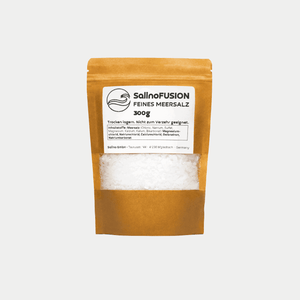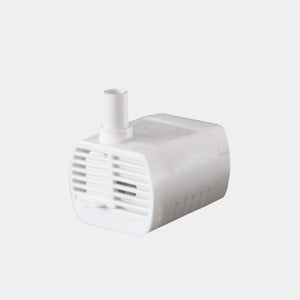Reading time: 13 minutes
In a world where respiratory diseases such as asthma , COPD , and allergies are becoming increasingly common, many sufferers are looking for ways to better manage their condition. Medication and medical care are undoubtedly important, but often the feeling of being alone with one's questions, fears, and everyday challenges remains. This is where support groups come in – but what exactly can they do? Why should you consider joining? And how do you find the right group for your needs?
What are self-help groups for respiratory diseases?
 Imagine the following situation: You've recently been diagnosed with COPD or have been living with severe asthma for some time. Your doctors have prescribed medication and given you behavioral recommendations, but questions keep coming up in your daily life. How do others cope with sudden shortness of breath in public? What strategies help on bad days? And how do you explain the limitations that come with a chronic respiratory disease to friends and colleagues?
Imagine the following situation: You've recently been diagnosed with COPD or have been living with severe asthma for some time. Your doctors have prescribed medication and given you behavioral recommendations, but questions keep coming up in your daily life. How do others cope with sudden shortness of breath in public? What strategies help on bad days? And how do you explain the limitations that come with a chronic respiratory disease to friends and colleagues?
Self-help groups offer a safe space where precisely these questions can be discussed. Unlike medical consultations, these groups focus on practical experience and emotional exchange. They are groups of people who all share the same goal: to live the best possible life despite their illness.
Self-help groups for respiratory diseases exist in various forms:
- Diagnosis-specific groups : Focused on a specific disease such as COPD, asthma or specific allergies
- Cross-groups : For various respiratory diseases
- Age or gender-specific groups : e.g. for young adults with asthma or specifically for women with COPD
- Online self-help groups : Virtual communities organized through social networks or special platforms
Scientific studies demonstrate the effectiveness of these groups. A 2023 study by the German Society of Pneumology showed that regular participants in COPD support groups required fewer inpatient treatments and had a better quality of life than non-participants with comparable symptoms.
The 7 most important benefits of self-help groups
 1. Exchange of experiences at eye level
1. Exchange of experiences at eye level
In self-help groups, you'll meet people who know your challenges from personal experience. Nothing can replace this peer-to-peer exchange—not even the best doctors. When someone can share firsthand how they dealt with an asthma attack at the movies or what strategies help with allergic reactions at the office, that's invaluable knowledge.
According to a survey conducted by the German Association of Pneumologists, 87% of respondents stated that the exchange of practical experiences was the most valuable aspect of their self-help group.
2. Emotional support and understanding
The psychological burden of chronic respiratory diseases is often underestimated. Fear of the next attack, frustration over limitations, and sometimes even feelings of shame weigh heavily on many sufferers. In the group, you'll meet people who understand these feelings—without long explanations or trivialization.
3. Current information on treatment options
Many self-help groups regularly invite experts to their meetings or organize informational events. This provides access to the latest findings on treatment options, new medications, or complementary treatment approaches. Participants often report that their group helped them learn about new treatment options earlier and then discuss them with their doctor.
Particularly valuable: In the group, you can benefit from the experiences of others with certain therapies or medications and thus better assess whether something might be suitable for you.
4. Practical everyday tips and tools
From the best breathing technique during exercise to using inhalers, support groups share practical tips that can make everyday life easier. Experienced members often know helpful products, apps, or techniques that aren't necessarily part of standard medical advice.
Examples of such practical tips are:
- Breathing exercises for acute emergency situations
- Strategies for energy management in everyday life
- Adjustments in the living environment to prevent allergies
- Helpful apps for symptom recording or medication reminders
5. Motivation for a healthier lifestyle
Regular participation in a support group can significantly increase motivation for a healthier lifestyle. Many groups organize group activities such as customized exercise programs, breathing exercises, or relaxation exercises. Mutual encouragement and the sense of community help you stick with it – even when things get difficult.
Particularly effective: Some groups form "buddy systems" in which two participants support each other in their health goals and check in regularly.
6. Strengthening self-confidence and self-efficacy
Sharing experiences in a group setting helps many sufferers cope with their illness with more confidence. Seeing how others manage their lives despite similar or even more severe symptoms can be incredibly motivating. Psychologists refer to this as strengthening "self-efficacy"—the belief in one's own abilities to make a difference.
A 2022 study by the University of Heidelberg showed that the sense of self-efficacy among asthma patients increased by an average of 28% after six months of participation in a self-help group.
7. Representation of interests and social participation
Larger self-help organizations are also politically active in supporting the concerns of people with respiratory diseases. They advocate for improved care structures, research funding, and the recognition of certain treatments by health insurance companies. As a member of such a group, you can become part of this important work and thus contribute to improving the situation for all affected.
Examples of successful advocacy through self-help groups:
- Improving the reimbursement of certain therapies
- Participation in patient guidelines
- Raising public awareness of the needs of people with respiratory diseases
How does a self-help group work in practice?
The format of self-help group meetings can vary greatly depending on the group. Typically, participants meet every one to four weeks for approximately 90-120 minutes in a neutral location such as a community center, clinic premises, or self-help contact center rooms.
A typical meeting might go like this:
- Welcome and introductory round : Each participant has the opportunity to briefly report on how they are currently doing or what topics are concerning them.
- Topic focus : There is often a predetermined topic on which the group discusses, e.g. "Dealing with shortness of breath in professional life" or "Experiences with certain therapies".
- Open exchange : time for questions, discussions and mutual support.
- Information section : In some groups there are short presentations by experts or experienced group members on specific aspects of the disease.
- Practical part : Some groups integrate practical exercises such as breathing techniques, light physical activities or relaxation methods.
- Conclusion and outlook : Summary and planning of the next meeting.
Important to know: Most self-help groups are governed by the principle of confidentiality—what is discussed in the group stays within the group. Furthermore, the rule of voluntariness applies: No one is required to speak or participate in activities if they don't want to.
In addition to regular meetings, many groups also organize special events such as:
- Information evenings with doctors or therapists
- Workshops on specific topics such as stress management or nutrition
- Joint social activities such as excursions or celebrations
- Pulmonary exercise groups or adapted exercise programs
Who do self-help groups particularly help?
Self-help groups can be valuable for anyone suffering from a respiratory disease, but they offer particularly significant benefits to certain groups of people:
Newly diagnosed
Those who have just received a diagnosis are often faced with a mountain of questions and uncertainties. In a group setting, experienced "respiratory sufferers" can offer valuable guidance and make life with the disease easier.
People with psychosocial stress
The psychological component of respiratory diseases is often under-addressed in medical care. Those suffering from anxiety, depression, or social isolation related to their illness can find a place for open discussion about these issues in self-help groups.
Studies show that participation in a self-help group can significantly reduce depressive symptoms in chronically ill people.
Relatives of those affected
Not only the sick individuals themselves benefit from self-help groups, but also their families. Some groups offer special meetings for family members, where they can learn how to best support their sick loved ones without overtaxing themselves.
People with complex medical conditions
In complex cases, such as when multiple illnesses occur simultaneously or unusual symptoms occur, exchanging ideas with other affected individuals can be particularly valuable. Often, the group includes people with similar experiences who can offer relevant advice.
How do I find the right support group?
The search for a suitable self-help group can be done in various ways:
1. National self-help contact points
Germany has a well-developed network of self-help contact points that can assist in finding a suitable group. The National Contact and Information Center for the Promotion and Support of Self-Help Groups (NAKOS) provides a central point of contact.
Contact:
- Website: www.nakos.de
- Phone: 030 31018960
- Email: selbsthilfe@nakos.de
2. Health insurance companies
Many health insurance companies support self-help groups and can provide you with information about local services. You can often find search functions for self-help groups on their websites.
3. Pulmonologists and clinics
Pulmonologists and clinics specializing in respiratory diseases can often recommend local support groups. Ask specifically about them at your next visit!
4. Large self-help organizations
There are nationwide organizations with local groups for the most common respiratory diseases:
- German Allergy and Asthma Association ( www.daab.de )
- German Respiratory League ( www.atemwegsliga.de )
- Pulmonary Emphysema-COPD Germany ( www.lungenemphysem-copd.de )
- Patients' League for Respiratory Diseases ( www.patientenliga-atemwegserkrankungen.de )
5. Online communities
If there is no suitable group in your area, or if you are unable to attend in-person meetings for health reasons, online support groups are a good alternative. These can be found on dedicated platforms or social networks.
Criteria for selecting a suitable group:
- Specificity : Find a group that matches your specific condition
- Group structure : Some prefer small, familiar groups, others larger ones with professional leadership
- Meeting frequency and times : Make sure that these fit into your daily routine
- Distance : The group should be easily accessible
- Level of activity : Find out whether the group only offers discussion groups or also other activities
Tip : Many groups offer a non-binding "trial and error" session at an initial meeting. Take advantage of this opportunity—a support group should feel right for you.
Conclusion: The first step towards a better quality of life
 Self-help groups are a valuable complement to medical care for people with respiratory diseases. They offer a safe space in which those affected can share their experiences, learn from each other, and support one another.
Self-help groups are a valuable complement to medical care for people with respiratory diseases. They offer a safe space in which those affected can share their experiences, learn from each other, and support one another.
Participation in such a group can not only improve the practical management of everyday life with a chronic illness, but also offer emotional relief and new perspectives. The experience of not being alone with one's problems and being understood by people who are going through similar things can be incredibly empowering.
If you're considering joining a support group, don't hesitate—the first step is often the hardest. Use the resources listed to find a suitable group near you, and give yourself and the group time to get to know each other.
In addition to sharing information within the group, optimizing your home environment can also contribute to improving your respiratory health. Many sufferers report positive experiences with special air purifiers or our mini saltwater systems for the home, which bring the beneficial effects of salt air into their own four walls. These devices, such as the compact mini saltwater system from SalinoVatis , can be a useful addition to your personal health management—a topic also discussed in many self-help groups.
Remember: The journey with a chronic respiratory disease doesn't have to be a lonely one. In community with like-minded people, challenges are often easier to overcome and new ways to live a fulfilling life despite health limitations are found.



